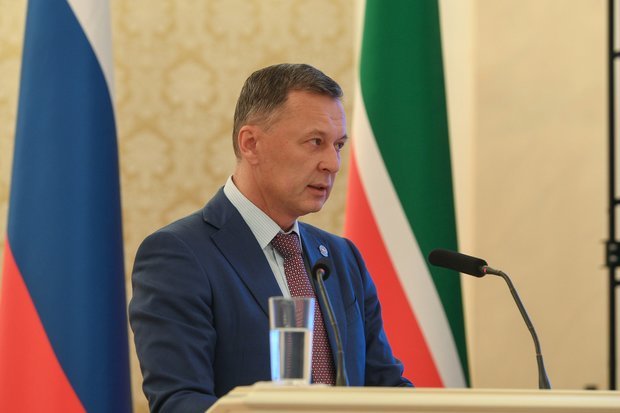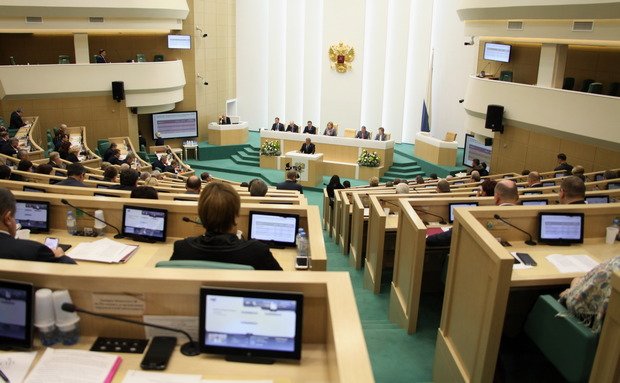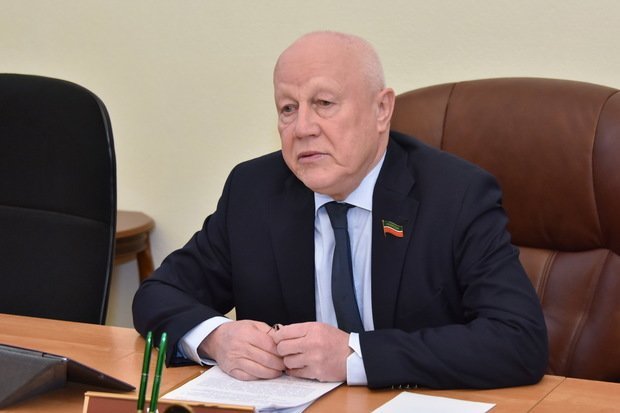''Tatarstan's GDP is to grow to five trillion rubles''
7 Days: from new rules for self-employed to emergence of unmanned vehicles on Kazan roads
In 2019, the self-employed will come out of the shadow and will be obliged to notify the tax service on their activities, unmanned vehicles are going to ply the streets of Kazan in the test mode, and the works of Tatar classics will appear in the form of audiobooks. At the same time, the region still deducts most of its income to the federal budget. This and other news were discussed in the news and analytical programme 7 Days broadcasted on TNV channel. Read more in the review of Realnoe Vremya.
Self-employed will come out of the shadow
The year 2019 is going to begin with a new status for thousands of people — along with individual entrepreneurs, there will appear self-employed. These are citizens who, not being individual entrepreneurs, provide services for personal, domestic and other similar needs without involving employees to other physical persons. The list of self-employed is still being in the process of formation, in each region it can be different.
From 2019, as an experiment in Moscow, Moscow Oblast and Kaluga Oblast, as well as in Tatarstan, self-employed are obliged to voluntarily notify the tax authorities about their activities and pay a tax on professional activities. According to tax specialists, there are from 300 to 500,000 self-employed in Tatarstan. Such approximate data emphasize how much this market is still ''shadow''.
Marat Safiullin, the head of the tax service of Tatarstan, notes that the self-employed will not face complex accounting. At the end of the month, the tax authority will calculate the amount of tax and notify about it. If the tax amount is less than 100 rubles, it will be added to the next month. There is no obligation to submit tax reports. The self-employed are exempt from the use of cash registers — all payments to customers, including the formation and direction of the buyer's cash receipt, will be carried out directly in the mobile application ''My Tax''.
''At the initial stage in the first year of the pilot project in the territory of the republic there will be no penalties, checks for the self-employed,'' Safiullin assures.

During the year, the self-employed will have the status of immunity. But for those who choose to remain in the shadow, nothing is going to change. No one cancels inspections and penalties for them. Given that since July of this year the tax service has already have information about all transfers of all bank accounts, it will be much easier to find entrepreneurs in ''shadow''. Plus, traditional methods of detection — control purchases from Internet portals, monitoring of communities in social networks, tracking neighbours' complaints about industrial noise.
It is not necessary to go to the tax service individually to work under the law. It will be enough to download the free app My Tax. Now the ''filling'' of the mobile application is being finalized. It is already known: one will need to enter the phone number, receive SMS with the code and enter it. Then choose the field of activity and region. Fill in personal data, send passport scan, photo. After verification, the TIN will appear on the screen and access to the personal account will be provided.
''37% of the tax revenues will be transferred to the Obligatory Health Insurance Fund, payments to the Pension Fund are not provided by law. The size of the pension will depend on the self-employed,'' explains Marat Safiullin.
What rates are set when using the new tax regime? The tax rate for the sale of goods and services to individuals will be 4%, for the sale for individual entrepreneurs and legal entities — 6%.
''Each self-employed person who registers will be given a tax deduction of 10,000 rubles. As the tax is paid, 1% of the amount paid will be withheld. In fact, for each self-employed person who has switched to the new tax regime, the rate at the beginning will be 3% for the provision of goods and services to individuals, and 5% — to legal entities,'' Safiullin says.
However, not everyone can become self-employed. Persons engaged in the sale of excisable goods, resale of goods and property rights, engaged in the extraction and sale of minerals, and those engaged in business in the interests of a third party on a contractual basis will not be able to switch to the new tax regime. As well as notaries, arbitration managers, lawyers, as their activities are regulated by separate laws.
Experts see several advantages in the status of self-employed. This is a legal, official income, and therefore work experience, and the possibility of pension savings, and in the same banks, you can safely count on the provision of a loan as an entrepreneur.

Donor regions need support
A number of important statements were made last week in Moscow, at the site of the Federation Council, where Tatarstan presented projects. In the foyer of the upper house of the Russian parliament there is a special exhibition of achievements of Tatarstan. The republic declared itself as an economically powerful region, producing diverse products.
The developed, self-sufficient region, judging by the speech of the president of the Republic of Tatarstan in the Federation Council, is set for breakthrough development further. Rustam Minnikhanov outlined the goal — to double the gross product by 2030, from the current 2,4 trillion rubles to 5 trillion.
Many projects are reflected in the Development Strategy of the region until 2030. Industry locomotives are also known — petrochemistry, chemistry, oil refining, engineering, information technology. But in order for the declared projects to become a reality, the region needs support. Rustam Minnikhanov said this phrase more than once during his speech. And we are not talking about additional subventions in the region. It is about the support of infrastructure projects in Tatarstan. In fact, about their co-financing. In total, the republic has 48 such projects. For example, the project of construction of the relief road of M7 federal highway or the Moscow-Nizhny Novgorod-Kazan highway. Or the project of the reconstruction of Zainskaya GRES, which involves the construction of two blocks of CCGT with a capacity of 1685 MW. All this is investment in the real economy, in real growth. Tatarstan proposed to start it in order not to worsen the current income base of donor regions.
''At the federal level, a decision is made that leads to the loss of income of the regions. I would like to draw attention to these issues,'' Rustam Minnikhanov said from the rostrum.
''Our legislative initiatives do not even reach the State Duma. It's a big problem. We know more precisely how it will be better for us than Moscow,'' political expert Ruslan Aysin believes.
''There are projects, but time goes on, and the implementation is very sluggish. China has already built everything, Kazakhstan has almost built everything. Time is a resource of the economy. If not done in time, then it is no longer necessary,'' said Chairman of the Committee of the State Council of the Republic of Tatarstan on Economy, Investment and Entrepreneurship Marat Galeev.

It is noteworthy that all these statements of the leadership of Tatarstan sound against the background of the recent speeches of President Vladimir Putin. The Russian president also calls for a breakthrough in the economy, more active introduction of digital technologies and the fight against poverty. Political scientist and journalist Yury Alaev believes that this message will sooner or later push the federal centre to review its relations with strong regions such as Tatarstan.
The Federation Council, according to many experts, is the platform where the voice of Tatarstan will and should be heard. The head of the upper house of the Russian parliament, Valentina Matvienko, herself in the past was a successful leader of a strong region.
''Today Tatarstan is a leading region in many directions. I am very pleased that they are the most advanced in terms of the development of digital economy, innovation, technology parks and education. Behind it, there is a huge work of inhabitants of Tatarstan and, of course, of the effective administrative team,'' Chairman of the Federation Council of the Federal Assembly of the Russian Federation Valentina Matvienko emphasized.
National literature is going to take a new shape
This year has been full of anniversaries associated with the life and work of outstanding Tatar figures. It was the year of the 200th anniversary of the great scientist, theologian Shihabetdin Marjani, the 140th anniversary of the birth of the writer, figure of the Tatar national movement Gayaz Iskhaki. Meanwhile, two memorable dates passed somehow unnoticed to the public — 240 years ago it was published the first Tatar alphabet, compiled by Sagit Khalfin, a teacher-educator. It was called The Alphabet of the Tatar language with a detailed description of the letters and textures. By the way, this year marks 130 years since the birthday of one of the authors of the first illustrated ABC-book in Yañalif by Sufiya Tagirova.
What is happening with the ethnic literature today? Journalists of 7 Days found out what formats should be in the age of digital technologies in order to maintain interest in ethnic literature.
One of the modern children's authors Rkail Zaydulla recalls a time when his works were published with the circulation of 10,000 copies. And all books were sold out like hot cakes. Last year, the circulation of his last published book with children's poems was only 3,000 copies. And the book is being sold with difficulty. Not because it is expensive, not because it is ugly, not because it is uninteresting, but because it is unnecessary. Rkail Zaydulla acknowledges that for every writer there is no greater tragedy than to live, realizing the futility of his profession.

In recent years, audiobooks have become increasingly popular. Such book is not heavy in every sense of the word. The file will fit on a small flash drive. You can listen to the book on the way, when doing household chores or resting.
By the end of this year, audio materials of 162 hours are to be recorded in Kazan. That is, you can listen to Tatar authors without stopping for almost seven days — 35 works by 21 authors. Next year they plan to record 600 hours. This will include some of the most favourite works of Tatar classics. You can download the audiobook on the website of the Tatar book publisher for absolutely free.
He was called a Tatar Solzhenitsyn. In the Soviet years, his work was subjected to severe censorship. His famous novel Yagez ele ber doga or Let's pray about the life in Gulag received national recognition. Ayaz Gilyazov wrote 40 plays, five novels and dozens of novels. This is exactly the legacy that will soon see the light in a new performance. The widow of the writer Nakiya Gilyazova hopes that the audiobook will give everyone an opportunity for a new reading. Hearing once, one will want to see the book, touch and read.
Unmanned vehicles on the roads of Kazan
In December, Moscow and Kazan are going to start testing unmanned vehicles on public roads. Their progress will be monitored by experts, the results will form the basis of the legal framework for the regulation of the industry.
Yandex, KAMAZ PJSC and a number of other organizations will participate in the testing. About 200 cars will be released on the streets. The experiment ends in March 2022.
Few know — in Kazan there is the relatively new phenomenon for Russia such as carsharing for already almost six months. Artur Yenikeev is the director of the carsharing company.
In short, carsharing is the individual transport for a short period of time. You take a free car in one place, leave it in another, where there is parking, of course. It's like a bicycle rental. In Moscow, the system is already well developed, now it has reached Kazan.
With the help of a special application, a person finds the nearest car — one of forty. It doesn't have a driver, but it already has an ignition key.

''Before you start renting, there is a process of user registration in a special service. For this purpose the person needs to provide the passport, driver's license and bank card,'' Artur Yenikeev says. ''I think the future belongs to car sharing. Especially in big cities. Because the cost of maintaining personal car is very high,'' adds Artur.
Carsharing is just one of the visible signs of the new global economy of sharing, and it is really able to change the way of life, as it has already changed the way of life of Artur.
Unmanned vehicles are not an attraction or a new service for wealthy citizens. If everything is ready technically to transfer all cars of carsharing to temporary unmanned mode, then what prevents to equip with time this mode all taxis of the city at least?
Unmanned and free taxi in Innopolis knows every bump in this city of the future. In Kazan, the unmanned vehicles will become only a cog in the global transport system of the city. Needless to say, it will be a smart system.
''The system itself will determine that I need to get from point A to point B. But it will see that thousands of other people want to get there with you, and will redirect the flows itself,'' deputy chief architect of Kazan Timur Kadyrov says.
''Drivers will eventually be replaced by IT specialists. But this cycle will take 10-15 years. It's about education. Completely unmanned vehicle without controls is quite a long horizon,'' said Minister of Information and Communication of the Republic of Tatarstan Roman Shaykhutdinov.